With new technologies revolutionizing data collection, wildlife researchers are becoming increasingly able to collect data at much higher volumes than ever before. Now we are facing the challenges of putting this information to use, bringing the science of big data into the conservation arena. With the help of machine learning tools, this area holds immense potential for conservation practices. The applications range from online trafficking alerts to species-specific early warning systems to efficient movement and biodiversity monitoring and beyond.
However, the process of building effective machine learning tools depends upon large amounts of standardized training data, and conservationists currently lack an established system for standardization. How to best develop such a system and incentivize data sharing are questions at the forefront of this work. There are currently multiple AI-based conservation initiatives, including Wildlife Insights and WildBook, that are pioneering applications on this front.
This group is the perfect place to ask all your AI-related questions, no matter your skill level or previous familiarity! You'll find resources, meet other members with similar questions and experts who can answer them, and engage in exciting collaborative opportunities together. The AI for Conservation group provides a dedicated space to:
- Bridge disciplines: Create a space where ecologists, conservationists and environmental scientists can connect with computer scientists, artificial intelligence researchers and practitioners to address shared challenges.
- Advance knowledge: Share and discuss research, case studies and best practices at the intersection of artificial intelligence and conservation.
- Education: Provide educational resources that help ecologists understand AI methods and their use cases and inspire AI experts to learn about ecological applications.
- Facilitate collaboration: Offer resources and networking opportunities that enable AI researchers and conservation practitioners to co-develop solutions with real-world conservation impact.
Just getting started with AI in conservation? Check out our introduction tutorial, How Do I Train My First Machine Learning Model? with Daniel Situnayake, and our Virtual Meetup on Big Data. If you're coming from the more technical side of AI/ML, Sara Beery runs an AI for Conservation slack channel that might be of interest. Message her for an invite.
Header Image: Dr Claire Burke / @CBurkeSci

Explore the Basics: AI
Understanding the possibilities for incorporating new technology into your work can feel overwhelming. With so many tools available, so many resources to keep up with, and so many innovative projects happening around the world and in our community, it's easy to lose sight of how and why these new technologies matter, and how they can be practically applied to your projects.
Machine learning has huge potential in conservation tech, and its applications are growing every day! But the tradeoff of that potential is a big learning curve - or so it seems to those starting out with this powerful tool!
To help you explore the potential of AI (and prepare for some of our upcoming AI-themed events!), we've compiled simple, key resources, conversations, and videos to highlight the possibilities:
Three Resources for Beginners:
- Everything I know about Machine Learning and Camera Traps, Dan Morris | Resource library, camera traps, machine learning
- Using Computer Vision to Protect Endangered Species, Kasim Rafiq | Machine learning, data analysis, big cats
- Resource: WildID | WildID
Three Forum Threads for Beginners:
- I made an open-source tool to help you sort camera trap images | Petar Gyurov, Camera Traps
- Batch / Automated Cloud Processing | Chris Nicolas, Acoustic Monitoring
- Looking for help with camera trapping for Jaguars: Software for species ID and database building | Carmina Gutierrez, AI for Conservation
Three Tutorials for Beginners:
- How do I get started using machine learning for my camera traps? | Sara Beery, Tech Tutors
- How do I train my first machine learning model? | Daniel Situnayake, Tech Tutors
- Big Data in Conservation | Dave Thau, Dan Morris, Sarah Davidson, Virtual Meetups
Want to know more about AI, or have your specific machine learning questions answered by experts in the WILDLABS community? Make sure you join the conversation in our AI for Conservation group!
Group curators
- @annavallery
- | she/her
Seabird biologist experienced in research and applied conservation. Dedicated to conducting and using innovative research to inform conservation decisions.


- 0 Resources
- 3 Discussions
- 7 Groups
- @ViktorDo
- | he/him
PhD student at University of Exeter & University of Queensland. Interested in researching AI and its responsible application to Ecology, Environmental Monitoring and Nature Conservation.

- 0 Resources
- 0 Discussions
- 5 Groups



- 0 Resources
- 2 Discussions
- 8 Groups
No showcases have been added to this group yet.
- @Cteodorski
- | He/Him
Tech guy turned conservation nerd. Prototyping LoRa + solar sensor systems to help monitor wildlife where Wi-Fi and roads don’t reach.
- 0 Resources
- 2 Discussions
- 5 Groups
- @ttiagopinto
- | He/Him
Aspiring to learn more
- 0 Resources
- 0 Discussions
- 6 Groups
Hello! My name is Mia and I recieved a B.S. in computer engineering from Georgia Tech in 2023. I have experience writing primarily Python at Apple and Lockheed Martin Space. I'm looking to pivot into the conservation tech space and would be happy to connect!
- 0 Resources
- 0 Discussions
- 4 Groups
Currently getting my bachelor's on Biology by Universidade de Aveiro. My main interest are mammals, specially from the iberian peninsula.
- 0 Resources
- 0 Discussions
- 4 Groups
- @thebart
- | He/Him
University of Granada
Computer Scientist. Postdoc in Machine learning and Multimodal data processing.

- 0 Resources
- 1 Discussions
- 3 Groups
- @himalyanibex
- | He/him
Tech Entrepreneur, ex-Microsoft, ex-Google, believe in technology for greater good, insatiable curiosity towards seeking knowledge & understanding covering disciplines like game theory, mechanism design, economics, ecology, agent-based modeling etc. Hands on with IoT, AI/ML etc.
- 0 Resources
- 2 Discussions
- 4 Groups
- @Arjun_Viswa
- | S
- 0 Resources
- 0 Discussions
- 26 Groups
- @Johnolang
- | Him/he
Holds a master's degree in Water and Sustainable Development - Limnology and Wetland Management from IHE Delft Institute for Water Education, Netherlands.
- 0 Resources
- 1 Discussions
- 7 Groups
3point.xyz
Over 35 years of experience in biodiversity conservation worldwide, largely focused on forests, rewilding and conservation technology. I run my own business assisting nonprofits and agencies in the conservation community

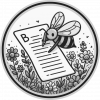
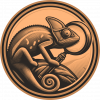
- 7 Resources
- 69 Discussions
- 12 Groups
- 0 Resources
- 0 Discussions
- 12 Groups
- @PierreBonnet
- | Pierre
https://orcid.org/0000-0002-2828-4389

- 0 Resources
- 1 Discussions
- 6 Groups
- @mjwethin
- | He/Him
Quantitative Ecologist
- 0 Resources
- 0 Discussions
- 4 Groups
El Instituto Humboldt está buscando un(a) Desarrollador(a) de Inteligencia Artificial que quiera aplicar su experiencia en Python y procesamiento de lenguaje natural para proteger la biodiversidad.
25 July 2025
The Marine Innovation Lab for Leading-edge Oceanography develops hardware and software to expand the ocean observing network and for the sustainable management of natural resources. For Fall 2026, we are actively...
24 July 2025
Dear colleagues, I'd like to share with you the output of the project KIEBIDS, which focused on using AI to extract biodiversity-relevant information from museum labels. Perhaps it can be applied also to other written...
17 July 2025
The Department of AI and Society (AIS) at the University at Buffalo (UB) invites candidates to apply for multiple positions as Assistant Professor, Associate Professor, or Full Professor. The new AIS department was...
8 July 2025
This is a chance to participate in a short survey about the preferences that conservation practitioners have for evidence. There's a chance to win one of three £20 Mastercard gift cards.
24 June 2025
In this case, you’ll explore how the BoutScout project is improving avian behavioural research through deep learning—without relying on images or video. By combining dataloggers, open-source hardware, and a powerful...
24 June 2025
Using Ultra-High-Resolution Drone Imagery and Deep Learning to quantify the impact of avian influenza on northern gannet colony of Bass Rock, Scotland. Would love to hear if you know of any other similar exaples from...
12 June 2025
La Universidad de Ingeniería y Tecnología (UTEC) está buscando cubrir nuevas vacantes en su Instituto Amazónico de Investigación para la Sostenibilidad (ASRI).
12 June 2025
Shared from WWF: "ManglarIA is a mangrove conservation project, supported by Google.org in 2023, that is deploying advanced technology, including artificial intelligence (AI), to collect and analyze data on the health...
12 June 2025
Careers
Rewilding Europe is seeking a Business Intelligence Analyst to support measuring rewilding impact through data automation, dashboards, and cross-domain analysis.
3 June 2025
The intern will support CI in exploring and implementing AI solutions that address conservation challenges. We are looking for someone familiar with modern AI technologies (genAI, AI agents, LLMs, foundation models, etc...
2 June 2025
HawkEars is a deep learning model designed specifically to recognize the calls of 328 Canadian bird species and 13 amphibians.
13 May 2025
September 2025
event
event
event
event
October 2025
event
event
event
December 2025
event
March 2026
event
December 2023
83 Products
Recently updated products
17 Products
Recently updated products
| Description | Activity | Replies | Groups | Updated |
|---|---|---|---|---|
| Hello everyone,I’ve been running a set of trail cameras for several months and now have thousands of images showing consistent activity... |
|
Camera Traps, AI for Conservation, Animal Movement | 13 minutes 41 seconds ago | |
| Hello WildLabs community,Here's an update on our progress with the AI-based marine mammal sound detection platform.What We've AccomplishedWe've completed our first milestone:... |
|
Acoustics, AI for Conservation, Marine Conservation | 58 minutes 38 seconds ago | |
| hi chad, its great to hear from you_its really a great idea and impactful journey in our community having experience in community-led conservation initiatives, working... |
|
Acoustics, AI for Conservation, Animal Movement, Camera Traps, Citizen Science, Climate Change, Community Base, Connectivity, Drones, eDNA & Genomics, Emerging Tech, Funding and Finance, Geospatial, Human-Wildlife Coexistence, Software Development, Wildlife Crime | 1 day 5 hours ago | |
| Hi everyone :)I’ll be in Kinshasa, DRC from 22 to 27 September as part of the AFRISTART program (Qawafel/RedStart Tunisie), which supports... |
|
AI for Conservation, Community Base, East Africa Community, Edge Computing | 1 day 7 hours ago | |
| We sell a product that includes the model, but we don't have a freely downloadable model for that purpose. You could try pytorch wildlife or speciesnet for a version to compare... |
|
AI for Conservation, Camera Traps, Edge Computing | 6 days 1 hour ago | |
| in the last 3 months we hosted allander hobbs, an under graduated student from the university of edinbrugh, UK .during his interactive... |
|
AI for Conservation, Animal Movement, Autonomous Camera Traps for Insects, Citizen Science | 6 days 1 hour ago | |
| Thanks for the informative videos ... wondered if anyone had recommendations for best IR PoE camera for monitoring wildlife at nighttime? my setup is to stream to a frigate server... |
+15
|
AI for Conservation, Autonomous Camera Traps for Insects, Camera Traps, Edge Computing | 1 week ago | |
| Hi Youssef,Yes I've been following along and am looking forward to this group!Feel free to share whatever! |
+16
|
AI for Conservation, Camera Traps, Edge Computing | 1 week 1 day ago | |
| Hey Alejandro, thanks for trying it! :))The feature you are asking about is called in technical language - animal re-identification. Unfortunately, we currently don't have this... |
|
AI for Conservation, Camera Traps, Data Management & Mobilisation, Software Development | 1 week 4 days ago | |
| Very inspiring! I completely agree that AI should help free conservationists from repetitive tasks so they can focus on strategy and fieldwork. In our IDEPROCONA project in... |
|
AI for Conservation | 1 week 6 days ago | |
| I create ocean exploration and marine life content on YouTube, whether it be recording nautilus on BRUVs, swimming with endangered bowmouth... |
|
Acoustics, AI for Conservation, Animal Movement, Camera Traps, Citizen Science, Drones, Emerging Tech, Marine Conservation, Sensors, Sustainable Fishing Challenges, Wildlife Crime | 2 months ago | |
| I think it is time for exploring many AI s application around our careers and projects. With waste management too! this is also very interesting |
|
AI for Conservation | 2 weeks ago |
Computational Entomology Webinar III: Processing liquid samples
22 May 2024 12:40am
DeepDive: estimating global biodiversity patterns through time using deep learning
20 May 2024 4:51pm
4th International Workshop onCamera Traps, AI, and Ecology
9 May 2024 1:00pm
Harnessing large language models for coding, teaching and inclusion to empower research in ecology and evolution
9 May 2024 12:51pm
Voices of Sustainability: Perspectives from - Africa Wholesome Sustainability Explained: What is E-PIE
7 May 2024 3:06am
1 July 2024 6:02pm
3 July 2024 3:30pm
AI & Gamified Citizen Science
3 May 2024 7:24am
3 May 2024 5:09pm
Check out FathomVerse, a new game by MBARI folks for involving citizen scientists in improving algorithms to ID deep sea critters!
FathomVerse | mobile game
FathomVerse is a mobile game designed to inspire a new wave of ocean explorers and improve AI for ocean life.
3 May 2024 8:28pm
This is so cool! I am 1000% going to see if they want to come talk about it at Variety Hou!
Travel grants for insect monitoring an AI
3 May 2024 5:20pm
Drop-deployed HydroMoth
2 April 2024 10:20am
15 April 2024 6:53am
Hi Matthew,
Thanks for your advice, this is really helpful!
I'm planning to use it in a seagrass meadow survey for a series of ~20 drops/sites to around 30 m, recording for around 10 minutes each time, in Cornwall, UK.
At this stage I reckon we won't exceed 30 m, but based on your advice, I think this sounds like not the best setup for the surveys we want to try.
We will try the Aquarian H1a, attached to the Zoom H1e unit, through a PVC case. This is what Aquarian recommended to me when I contacted them too.
Thanks for the advice, to be honest the software component is what I was most interested in when it came to the AudioMoth- is there any other open source software you would recommend for this?
Best wishes,
Sol
21 April 2024 7:10pm
Hey Sol,
No problem at all. Depending on your configuration, the Audiomoth software would have to work on a PCB with an ESP32 chip which is the unit on the audiomoth/hydromoth, so you would have to make a PCB centered around this chip. You could mimic the functionality of the audiomoth software on another chip, like on a raspberry pi with python's pyaudio library for example. The problem you would have is that the H1A requires phantom power, so it's not plug and play. I'm not too aware with the H1e, but maybe you can control the microphone through the recorder that is programmable through activations by the RPi (not that this is the most efficient MCU for this application, but it is user friendly). A simpler solution might be to just record continuously and play a sound or take notes of when your 10 min deployment starts. I think it should last you >6 hours with a set of lithium energizer batteries. You may want to think about putting a penetrator on the PVC housing for a push button or switch to start when you deploy. They make a few waterproof options.
Just somethign else that occured to me, but if you're dropping these systems, you'll want to ensure that the system isn't wobbling in the seagrass as that will probably be all you will hear on the recordings, especially if you plan to deploy shallower. For my studies in Curacao, we aim to be 5lbs negative, but this all depends on your current and surface action. You might also want to think about the time of day you're recording biodiversity in general. I may suggest recording the site for a bit (a couple days or a week) prior to your study to see what you should account for (e.g. tide flow/current/anthropogenic disturbance) and determine diel patterning of vocalizations you are aiming to collect if subsampling at 10 minutes.
Cheers,
Matt
3 May 2024 12:55pm
Hi Sol,
If the maximum depth is 30m, it would be worth experimenting with HydroMoth in this application especially if the deployment time is short. As Matt says, the air-filed case means it is not possible to accurately calibrate the signal strength due to the directionality of the response. For some applications, this doesn't matter. For others, it may.
Another option for longer/deeper deployments would be an Aquarian H2D hydrophone which will plug directly into AudioMoth Dev or AudioMoth 1.2 (with the 3.5mm jack added). You can then use any appropriately sized battery pack.
If you also connect a magnetic switch, as per the GPS board, you can stop and start recording from outside the housing with the standard firmware.
Alex
AI-enabled image query system
2 May 2024 2:16am
Elephant Collective Behaviour Project - Principal Investigator
1 May 2024 1:59pm
The Inventory User Guide
1 May 2024 12:46pm
Introducing The Inventory!
1 May 2024 12:46pm
22 July 2024 10:55am
23 July 2024 2:05pm
23 July 2024 2:53pm
Hiring Chief Engineer at Conservation X Labs
1 May 2024 12:19pm
AI for wolf ID
29 April 2024 7:09pm
Earth Blox dataset review: Meta Global Canopy Height (1m)
23 May 2024 7:23pm
27 May 2024 8:58am
AI volunteer work
3 February 2024 12:29pm
24 April 2024 10:59am
Hi Phani,
An entry point might be to participate in a challenge related to conservation on:
You could also reach out to a conservation organization (e. g. WWF or something smaller and more local) and ask them directly whether there's an opportunity for you to volunteer, perhaps even suggest an idea and maybe they find it useful.
I hope you find an opportunity you're looking for!
MegaDetector v5 release
20 June 2022 9:06pm
23 April 2024 9:43pm
Hi @dmorris,
might you have encountered this issue while working with Mega detector v5?
The conflict is caused by:pytorchwildlife 1.0.2.13 depends on torch==1.10.1pytorchwildlife 1.0.2.12 depends on torch==1.10.1pytorchwildlife 1.0.2.11 depends on torch==1.10.1
if yes what solution helped?
23 April 2024 10:38pm
I'm sorry, I don't use PyTorch-Wildlife; I recommend filing an issue on their repo. Good luck!
23 April 2024 10:38pm
[oops, the same reply got submitted twice and there doesn't seem to be a "delete" button]
Pytorch-Wildlife: A Collaborative Deep Learning Framework for Conservation (v1.0)
21 February 2024 10:30pm
26 February 2024 11:58pm
This is great, thank you so much @zhongqimiao ! I will check it out and looking forward for the upcoming tutorial!
17 April 2024 11:07am
Hi everyone! @zhongqimiao was kind enough to join Variety Hour last month to talk more about Pytorch-Wildlife, so the recording might be of interest to folks in this thread. Catch up here:
23 April 2024 9:48pm
Hi @zhongqimiao ,
Might you have faced such an issue while using mega detector
The conflict is caused by:pytorchwildlife 1.0.2.13 depends on torch==1.10.1pytorchwildlife 1.0.2.12 depends on torch==1.10.1pytorchwildlife 1.0.2.11 depends on torch==1.10.1
if yes how did you solve it, or might you have any ideas?
torch 1.10.1 doesn't seem to exist
Navigating AI and good governance for INGOs
23 April 2024 10:27am
Program Manager: Integrating movement and camera trap data with international conservation policy
22 April 2024 10:16pm
Postdoc: Biologging & Camera Trap Data Integration
22 April 2024 10:10pm
WILDLABS AWARDS 2024 - No-code custom AI for camera trap species classification
5 April 2024 7:00pm
10 April 2024 3:55am
Happy to explain for sure. By Timelapse I mean images taken every 15 minutes, and sometimes the same seals (anywhere from 1 to 70 individuals) were in the image for many consecutive images.
17 April 2024 5:53pm
Got it. We should definitely be able to handle those images. That said, if you're just looking for counts, then I'd recommend running Megadetector which is an object detection model and outputs a bounding box around each animal.
21 April 2024 5:19pm
Hi, this is pretty interesting to me. I plan to fly a drone over wild areas and look for invasive species incursions. So feral hogs are especially bad, but in the Everglades there is a big invasion of huge snakes. In various areas there are big herds of wild horses that will eat themselves out of habitat also, just to name a few examples. Actually the data would probably be useful in looking for invasive weeds, that is not my focus but the government of Canada is thinking about it.
Does your research focus on photos, or can you analyze LIDAR? I don't really know what emitters are available to fly over an area, or which beam type would be best for each animal type. I know that some drones carry a LIDAR besides a camera for example. Maybe a thermal camera would be best to fly at night.
4th International workshop on vocal interactivity in-and-between humans, animals, and robots
19 April 2024 3:03pm
WILDLABS AWARDS 2024 – MothBox
15 April 2024 5:06am
18 April 2024 10:39am
Already an update from @hikinghack:
19 April 2024 12:00pm
Yeah we got it about as bare bones as possible for this level of photo resolution and duration in the field. The main costs right now are:
Pi- $80
Pijuice -$75
Battery - $85
64mp Camera - $60
which lands us at $300 already. But we might be able to eliminate that pijuice and have fewer moving parts, and cut 1/4 of our costs! Compared to something like just a single logitech brio camera that sells for $200 and only gets us like 16mp, we are able to make this thing as cheap as we could figure out! :)

19 April 2024 12:54pm
Gotcha, well I look forward to seeing future iterations and following along with your progress!!
Early Warning Systems for Human-Wildlife Conflict, Zoonotic Spillover, and Other Conservation Challenges
17 April 2024 5:43pm
Faces, Flukes, Fins and Flanks: How multispecies re-ID models are transforming Wild Me's work
17 April 2024 11:10am
Join the Seeed Vision Challenge and Explore Conservation Tech!
10 April 2024 9:15am
Job Opportunity - Wildlife Protection Solutions
5 April 2024 9:22pm
Completely irrational animals...
3 April 2024 7:13pm
3 April 2024 9:09pm
3 April 2024 9:20pm
4 April 2024 5:05am
Rescuers hope AI will help reunite orphaned whale with its family in B.C.
3 April 2024 4:43pm

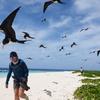

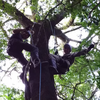


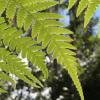
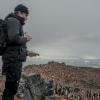






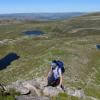











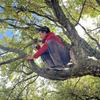








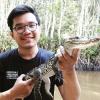









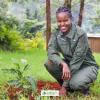

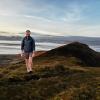








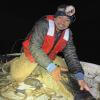






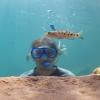


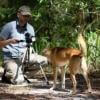

1 July 2024 5:48pm